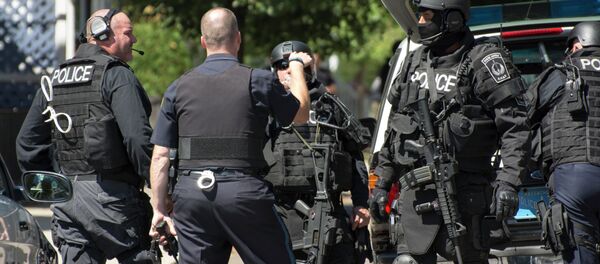The American Civil Liberties Union identified an additional 18 departments that used the device in that two-year span.
Stingrays allow police to pinpoint a phone's location within a few yards by posing as a cell tower. In the process, they can intercept information from the phones of people nearby, including innocent bystanders.
Despite assertions by the feds that stingrays are used to track killers, pedophiles and other dangerous criminals, records show local police have used the devices to track people suspected of everyday street crimes, including petty theft and check forgery.
"The problem is you can't have it both ways. You can't have it be some super-secret national security terrorist finder and then use it to solve petty crimes," Electronic Frontier Foundation lawyer Hanni Fakhoury told USA Today.
Specifics about when and how police have used stingrays, however, are largely unknown, in part because the FBI forces them to sign a non-disclosure agreement that prohibits officers from revealing how the phone-tracking technology works.

That sometimes leads prosecutors to drop the charges against a suspect if a defense attorney or judge pushes for more information about the tracking device.
Many defense attorneys said they did not know a stingray had been used in particular Baltimore police cases until USA Today contacted them, even though state law requires that they be told about electronic surveillance.
"I am astounded at the extent to which police have been so aggressively using this technology, how long they've been using it and the extent to which they have gone to create ruses to shield that use," said Stephen Mercer, the chief of forensics for Maryland's public defenders.
Prosecutors said they, too, are sometimes unaware when police use a stingray.
"When our prosecutors are made aware that a detective used a cell-site simulator, it is disclosed; however we rely upon the Police Department to provide us with that information," said Tammy Brown, a spokeswoman for the Baltimore's State's Attorney.
In April, a Baltimore police detective testified that officers had used cell-site simulators more than 4,300 times since 2007.
Some states require officers to get a search warrant to use the technology, and the Justice Department is considering imposing a similar rule on its agents.
In Baltimore, police routinely obtained "pen register" orders, which must be approved by a judge but do not require the same level of proof as a search warrant, USA Today reported. For a time last year, officers also started getting search warrants, then stopped, a detective testified in June.



